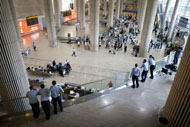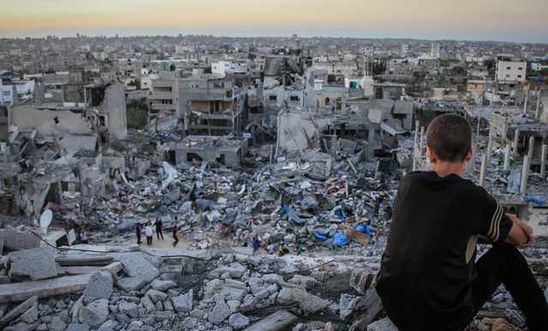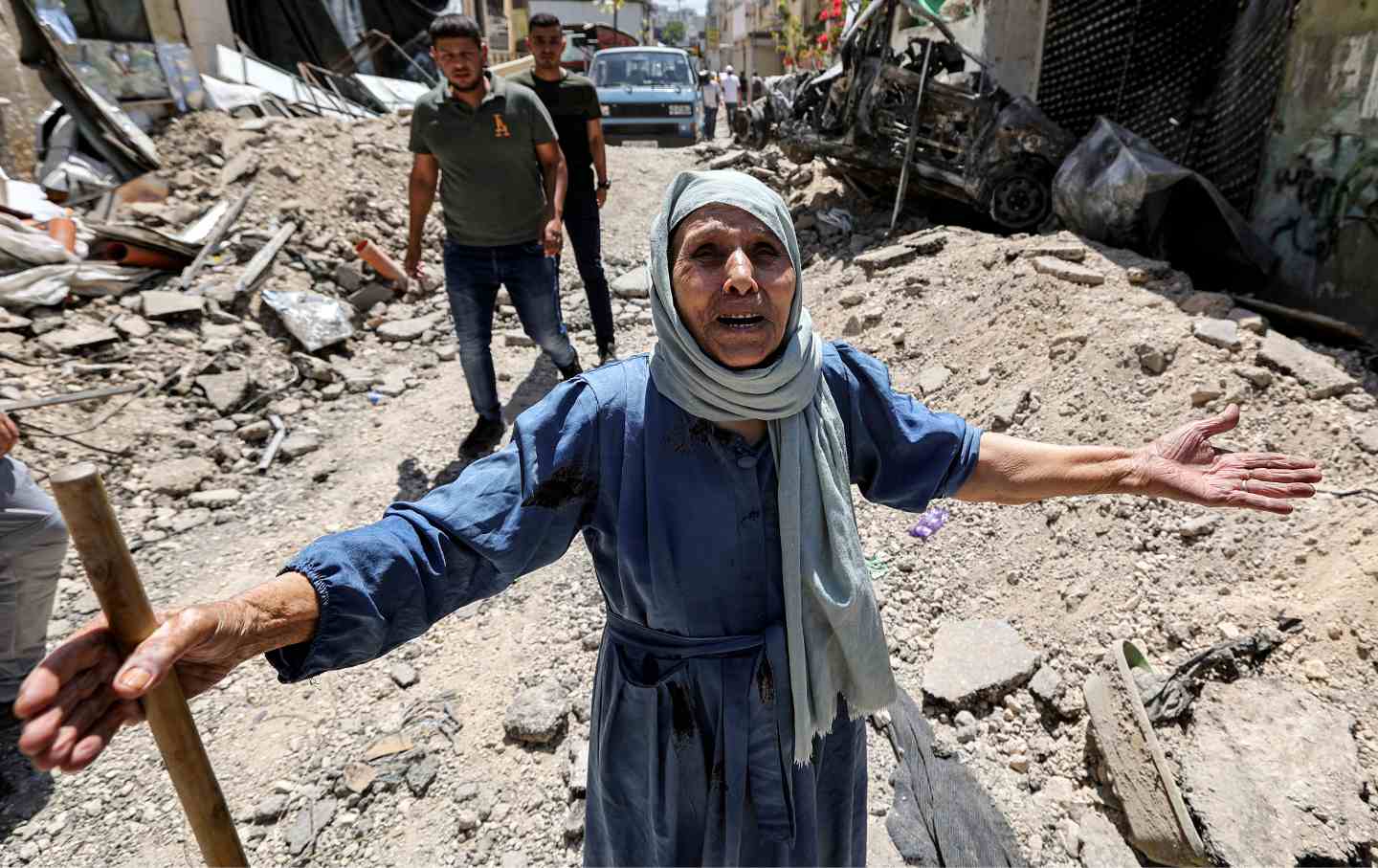What sets public figures apart from ordinary citizens is that everything they say or do is immediately thrown into the limelight. That is why these people, more than anyone else, must be particularly vigilant in phrasing their statements so as not to anger or offend others.
The fact that Pope Benedict XVI would comment on Islam in a way which, at best, could be categorized as irresponsible, and at worst, vindictive and discriminatory, is proof of this point. The backlash so far from the Pope’s speech in Germany on September 12 is still being felt throughout the Muslim world, Palestine included.
It is impossible to verify what was really going on in the pontiff’s mind when he quoted 14th-century Byzantine Emperor Manuel II Paleologus as saying, "Show me just what Mohammed brought that was new, and there you will find things only evil and inhuman, such as his command to spread by the sword the faith he preached.” The Pope then mentioned jihad, saying that violence was contrary to God’s nature and to reason.
While the Vatican has insisted that the Pope’s words were misconstrued and that he is an advocate of inter-faith dialogue, angry Muslims around the world are not buying it.
Protests broke out throughout Arab and Islamic countries, calling for an immediate apology from Pope Benedict for what they say are inflammatory comments against Islam and Prophet Mohammed. In the Gaza Strip, Prime Minister Ismail Haniyeh criticized the Pope’s comments after protests following Friday prayers saying, “These remarks go against the truth and touch the heart of our faith.”
While all Muslims have been stung by the Pope’s statements, Palestinians must be extremely careful that such an incident does not play right into the hands of Israel.
For years, Israel has tirelessly tried to create a rift between the Muslims and Christians in Palestine. It has attempted to incite Christians against their Muslim neighbors, pinning anti-Christian sentiments on so-called fanatic Muslims. A September 18 article published in Israel’s conservative Jerusalem Post begins with a venomous opening. “Although no Christian leader dare say it, the Christian community in the Holy Land has once again become the punching bag of Islamic extremism.”
The article refers to what it says are strained relations between the Muslims and Christians in the Palestinian territories, especially after a number of incidents in the Gaza Strip and the West Bank, where Palestinians from a previously unknown group called the “Lions of Monotheism” firebombed churches in condemnation of the Pope’s comments.
While such acts are deplorable by any standard, these were and most likely will remain isolated and highly suspicious acts. Immediately after the attacks, Haniyeh voiced his adamant rejection of such behavior, calling for protection for all the Palestinians, Christians especially.
A number of Muslim and Christian personalities in the Palestinian territories followed suit, working together for what can be best described as damage control. In Jenin, members of the Islamic Jihad took up positions to safeguard the Catholic Church there. One armed member of the group told reporters, “We have dozens of men guarding the church because this is a holy place.”
Greek Orthodox Archbishop Atallah Hanna also made a statement meant to have a calming and conciliatory affect throughout Palestinian society. “Both Muslims and Christians in this Orient belong to one nation… we oppose any position, which may arouse religious extremism and we consider that what hurts Muslims will naturally hurt Christians.”
This rings true in more ways than one. While no society can benefit from religious strife, the Palestinians have even more at stake. If the Palestinians split down the middle between Muslims and Christians - albeit with a much larger Muslim majority - this will naturally weaken their internal front in the face of external, namely Israeli, dangers.
The problem is that in a conservative society like the Palestinians’, religious sentiments run strong and are equally as fragile. If the trust between the two major faiths in this area is broken, Israel will no doubt swoop in to feed on its prey. Israel’s goal of conquer and divide will be made that much easier when the people themselves are already turning on each other.
In such instances, the media is exploited to the maximum in order to further the aforementioned goal. The New York-based magazine “Newsday” ran a story on September 19 that highlighted what it said was the “absolute terror” experienced by Palestine’s Christians following the Muslim outrage over the Pope’s statements.
The article even quotes a Nablus Christian priest saying the city’s Christian minority is too scared to answer their door or wear a necklace with a crucifix on the street.
To say the least, the attacks on Palestinian churches by a suspicious and unknown group, have been disproportionately overblown. Such behavior is unacceptable under any circumstances but such times also call for level heads and keeping matters in perspective.
While Muslims continue to express their discontent over the Pope’s comments and demand a direct apology from him, the Palestinians must also keep their broader interests in mind. For them, this is not just about Christian-Muslim sentiments and the irresponsible statements of a pontiff widely known for his conservatism. This goes even farther and beyond and threatens the very pillars of unity and religious tolerance the Palestinians have so long prided themselves on.
This is one time the people should listen carefully to their political and religious leaders and rise above any attempts to drive a wedge between members of the same nation. Muslims and Christians in Palestine have lived together in peace for centuries. Let us not allow the fatuity of one man coupled with the sinister intentions of an occupying power break what we have struggled for so long to build.
Joharah Baker is a Writer for the Media and Information Programme at the Palestinian Initiative for the Promotion of Global Dialogue and Democracy (MIFTAH). She can be contacted at mip@miftah.org








